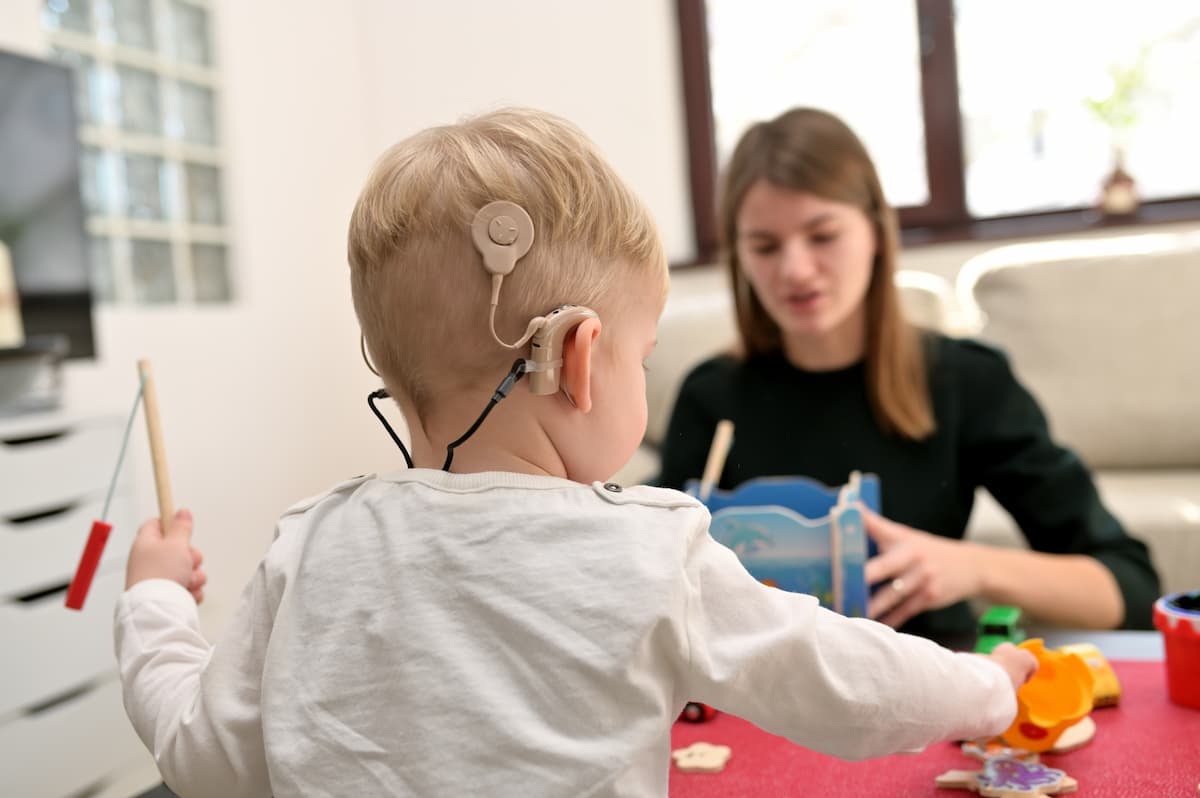- Center on Health Equity & Access
- Clinical
- Health Care Cost
- Health Care Delivery
- Insurance
- Policy
- Technology
- Value-Based Care
Genetic Hearing Loss Improves With DB-OTO Gene Therapy: CHORD Trial
Ten children who received DB-OTO for profound genetic hearing loss due to variants of the otoferlin gene showed notable improvements in hearing, according to initial results of the CHORD trial.
Ten children with profound genetic hearing loss due to variants of the otoferlin (OTOF) gene experienced clinically meaningful hearing improvements after receiving DB-OTO gene therapy, according to results presented at the Association for Research in Otolaryngology’s (ARO) 48th Annual ARO MidWinter Meeting.1 The investigational therapy is being assessed in 12 children in the phase 1/2 CHORD trial.
Hearing loss affects approximately 1.7 per 1000 babies screened, according to CDC data from 2022. | Image credit: icarmen13 - stock.adobe.com

The results presented at ARO included 72-week data demonstrating speech and development progress in the first child dosed at 10 months old, as well as initial results in 11 children aged 10 months to 16 years. Nine participants received DB-OTO intracochlear injections in just 1 ear, and 3 received bilateral injections.
At 48 weeks, the first patient dosed experienced hearing improvement to near-normal levels at key speech-relevant frequencies based on auditory brainstem responses (ABRs). Results of formal speech perception tests were also encouraging, with notable improvement from week 48 to week 72. The child correctly identified words like “mommy,” “cookies,” and “airplane” presented at a conversational level without visual cues.
“Sound is a significant part of the human experience that connects us to each other and our environment,” Jay T. Rubinstein, MD, PhD, Virginia Merrill Bloedel Professor of Otolaryngology and Bioengineering and Director, Bloedel Hearing Research Center, University of Washington School of Medicine, and a CHORD clinical trial investigator, said in a statement. “A year after treatment in one ear with DB-OTO, a child born profoundly deaf was able to enjoy music, engage in imaginative play and participate in bedtime reading when the cochlear implant on their other ear was removed. These seemingly small interactions are life-changing for these children as well as their families and these results continue to underscore the revolutionary promise of DB-OTO as a potential treatment for otoferlin-related hearing loss.”
A total of 11 patients had at least 1 assessment post treatment at the time of the analysis, and 10 showed clinically meaningful responses of improved hearing at various decibel hearing levels, while 1 has not experienced a change from baseline. Five participants had 24-week assessment data, 2 of whom showed improvement in average hearing thresholds to normal (≤25 dBHL) and 1 who experienced improvement to nearly normal (≤40 dBHL). Pure tone audiometry assessments corroborated ABR responses.
The surgical procedure to administer DB-OTO, which leverages an approach similar to cochlear implantation, was well tolerated in the study, and no adverse events (AEs) or serious AEs were considered related to the treatment. Vestibular adverse events related to the surgical procedure occurred in 5 patients and included nystagmus, nausea, dizziness, and vomiting, all of which resolved within 6 days of dosing.
Hearing loss affects approximately 1.7 per 1000 babies screened, according to CDC data from 2022.2 An estimated 50% to 60% of cases are due to genes, and about 40% of adults with hearing loss found during childhood experience daily functioning limitations.
While congenital deafness is a significant unmet need in health care, cases of OTOF gene–related deafness are very rare.1 The CHORD trial is currently enrolling children with this type of hearing loss for an initial dose-escalation cohort and an expansion cohort.
References
1. Latest DB-OTO results demonstrate clinically meaningful hearing improvements in nearly all children with profound genetic hearing loss in CHORD trial. News release. Regeneron. February 24, 2025. Accessed February 27, 2025. https://investor.regeneron.com/news-releases/news-release-details/latest-db-oto-results-demonstrate-clinically-meaningful-hearing
2. Data and statistics about hearing loss in children. CDC. Accessed February 27, 2025. https://www.cdc.gov/hearing-loss-children/data/index.html
Switching to Gene Therapy After Nusinersen or Risdiplam May Benefit Patients With SMA
August 15th 2025Children with spinal muscular atrophy (SMA) showed motor function improvements after switching to onasemnogene abeparvovec following prior treatment with nusinersen or risdiplam in a real-world study.
Read More
